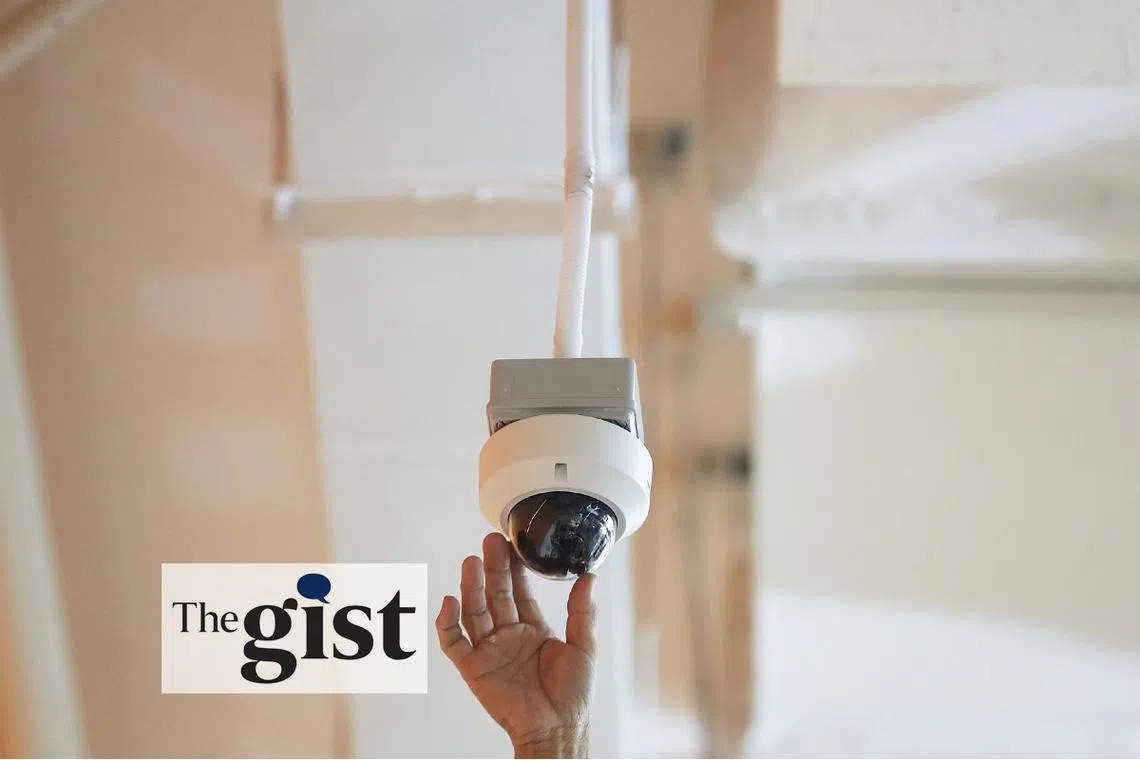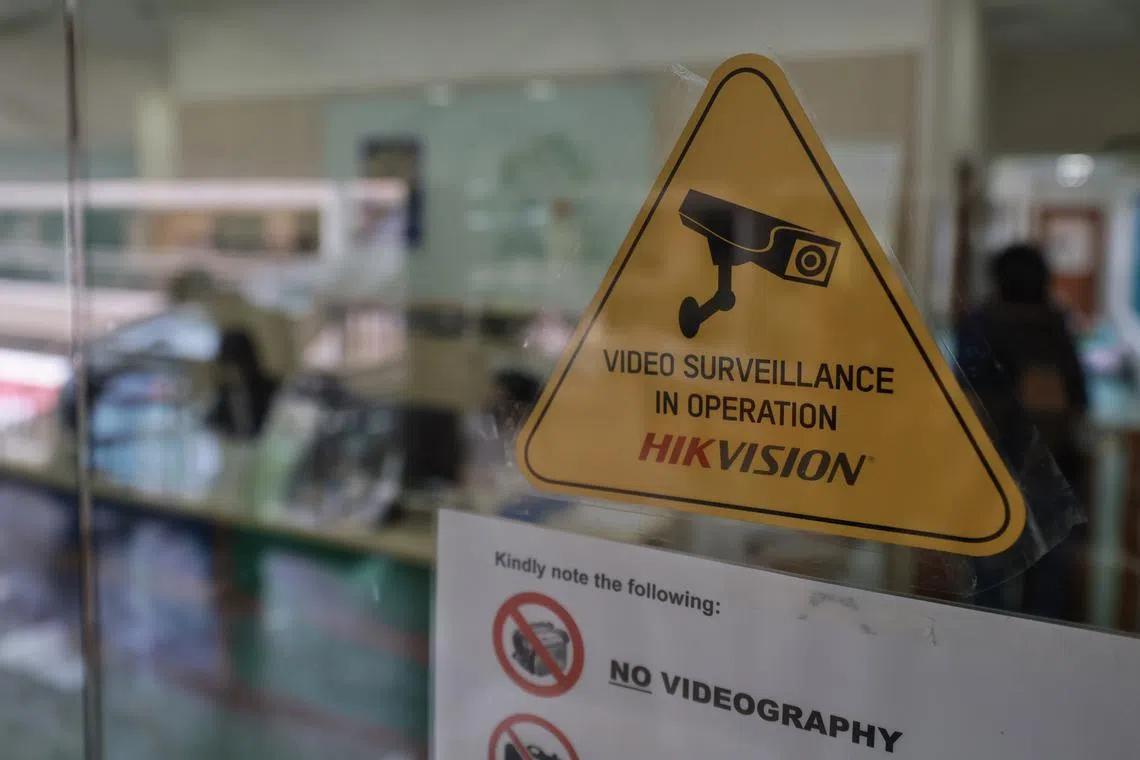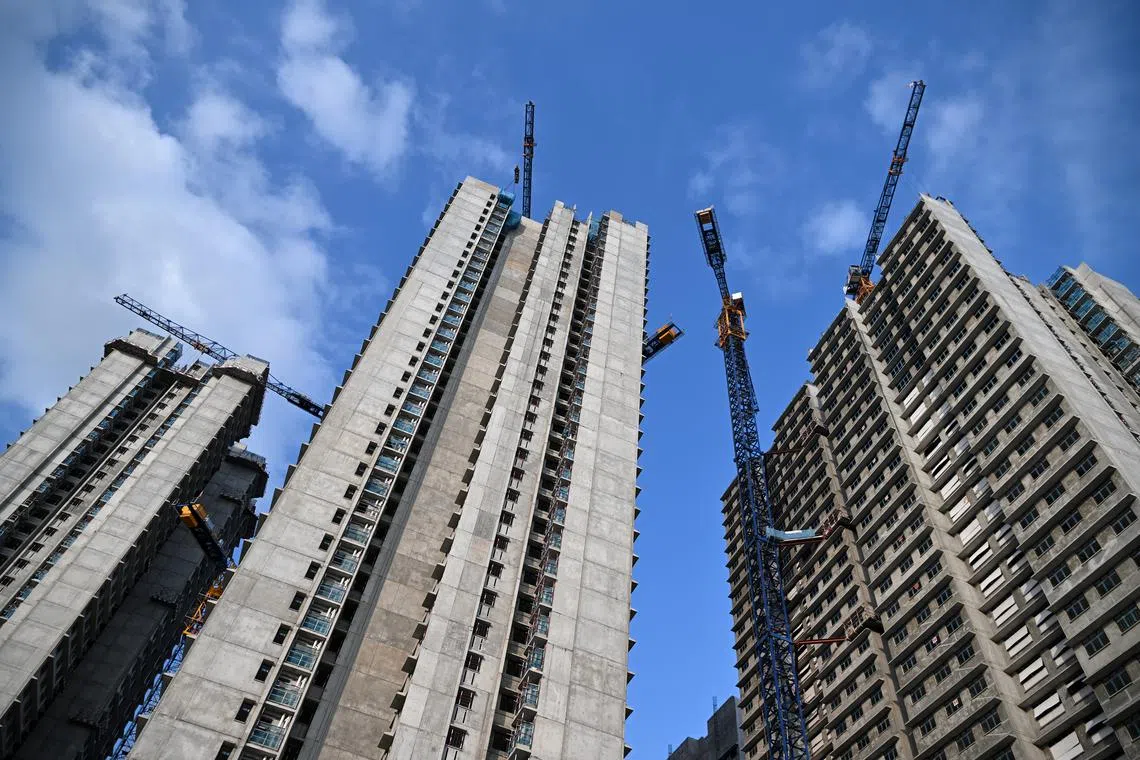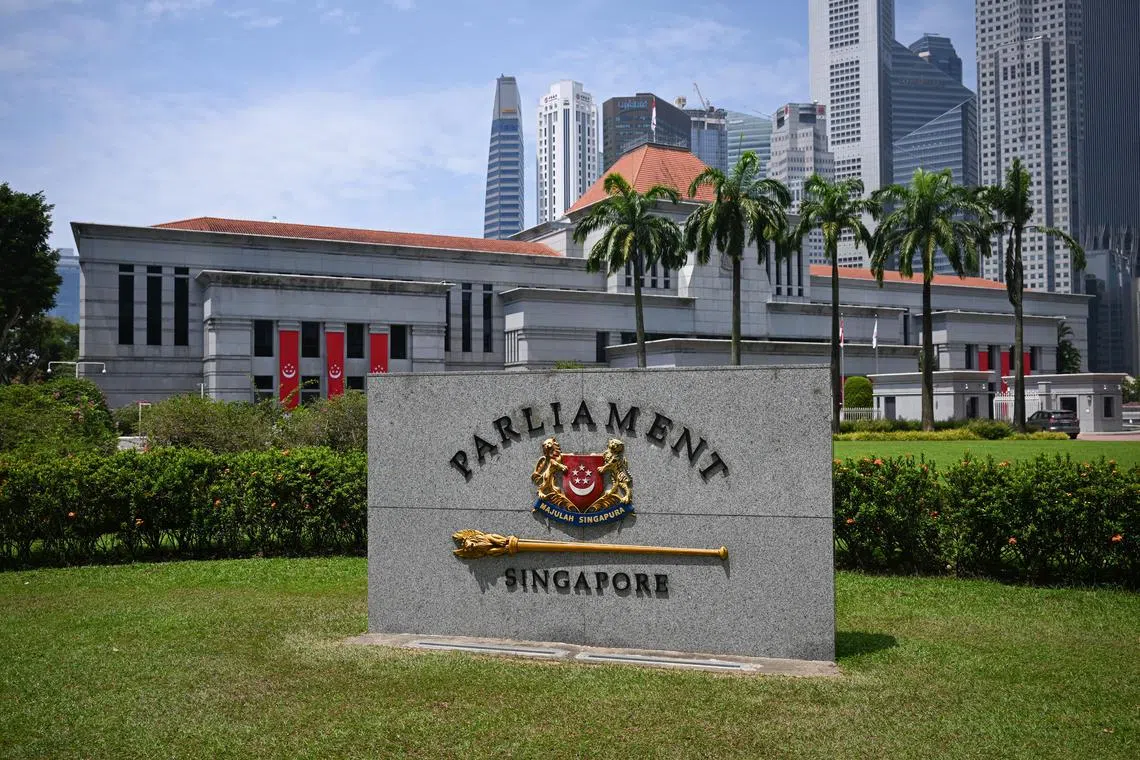The gist: Preventing abuse in pre-schools and meeting demand for HDB flats
Sign up now: Get ST's newsletters delivered to your inbox

ECDA plans to strengthen investigation protocols and possibly enhance financial penalties on errant operators.
ST PHOTO: KELVIN CHNG
SINGAPORE - MPs discussed ways to strengthen the system to prevent child abuse in pre-schools, and how to meet the strong demand for public housing from segments such as singles and the elderly.
The key takeaways:
ECDA to relook investigation processes, penalties

ECDA previously announced in August that the installation of CCTV cameras in all preschools will be made mandatory from July 2024.
PHOTO: ST FILE
The Early Childhood Development Agency (ECDA) plans to strengthen investigation protocols and possibly enhance financial penalties on errant operators to strengthen its system of preventing child abuse in pre-schools.
The agency will also work with the National Institute of Early Childhood Development and training providers to ensure all educators know what constitutes inappropriate and prohibited methods of child management, and better equip them to call out bad practices.
Minister of State for Social and Family Development Sun Xueling, announcing the moves in Parliament, said any operator’s policy on the use of mobile phones should not hinder its staff from reporting any wrongdoing.
Why it matters:
The review of ECDA’s regulatory framework for pre-school operators comes after a case of abuse came to light at a Kinderland pre-school. A teacher exposed the abuse, having filmed videos of another teacher forcing children to drink water, among other things.
Ms Sun said there are about 10 cases of child mismanagement each year per 100,000 enrolled children, and though this figure has remained low in recent years, each case is one too many.
Notably, by training teachers to recognise abuse and endorsing the use of mobile phones to capture evidence, the authorities are sending a strong signal to operators and teachers that educators have a responsibility to blow the whistle on abuse.
HDB to launch more two-room flexi flats from 2024 to 2026

From 2024 to 2026, HDB will launch up to 14,000 two-room flexi flats - an increase of about 30 per cent from 2021 to 2023.
ST PHOTO: KUA CHEE SIONG
Up to 14,000 two-room flexi Build-To-Order (BTO) flats will be launched over the next three years to meet demand from singles and the elderly, an increase of about 30 per cent from 2021 to 2023.
From the second half of 2024, singles will also be able to apply for such flats across all BTO projects islandwide, under the new public housing framework. Currently, singles aged 35 and older can buy new two-room flexi flats only in non-mature estates.
Why it matters:
Demand for such two-room flats has been rising over the years, with more people marrying late or choosing not to get married, and seniors choosing to right-size.
While the number of two-room flats launched for sale rose 5.1 per cent from 4,194 units in 2018 to 4,408 units in 2022, the number of applicants for such flats more than doubled over the same period, from 7,145 to 14,864.
Allowing singles to apply for such flats across all BTO projects will also give people more flexibility on where to live.
Under the new housing framework, projects in choicer locations will be categorised as Prime or Plus flats and will come with stricter resale conditions, while projects in other locations will be categorised as Standard flats and will come with the standard five-year minimum occupation period.
READ MORE HERE: HDB to launch up to 14,000 two-room flexi BTO flats from 2024 to 2026: Desmond Lee
More stringent process for registering societies

The Parliament House shot on Aug 2, 2023. Keywords: Parliament, Singapore, Ministerial, Debate, MP, Governance, Policy Making
The Straits Times
The registration process for new societies is likely to become more stringent, following proposed amendments to the Societies Act.
One change will allow the Registrar of Societies to request more information from applicants who go through the automatic registration process, which currently allows applicants to submit a form and pay prescribed fees, with no questions asked.
Another change will give the registrar power to reject an application submitted through this route, if he believes the society would likely be used for unlawful purposes or be in conflict with national security.
Why it matters:
Currently, about half of all applications go through the automatic pathway. Societies related to religion, ethnicity, language and politics go through a stricter route, which involves vetting.
With the proposed changes, the registrar will be able to weed out those that may try to rely on this automatic route to evade scrutiny, even if they may not fall into the more-scrutinised categories. This will ensure that societies that pose a threat to Singapore’s security or interests cannot be set up easily.
Since its introduction in 2004, three known societies registered through the automatic route were eventually flagged as suspicious, said the authorities.
If you have a few more minutes:
CCTV cameras in pre-schools
With closed-circuit television cameras becoming mandatory in pre-schools, measures will be put in place to protect the privacy of children and staff.
Tighter processes to prevent poll card errors
The Elections Department (ELD) will require its contracted printer of election poll cards to tighten its processes
Speaker rules on two complaints by NCMP Leong Mun Wai
Speaker of Parliament Seah Kian Peng on Monday ruled that Mr Murali Pillai (Bukit Batok) did not impute any improper motives to Progress Singapore Party Non-Constituency MP Leong Mun Wai during a debate on Aug 3 about lease agreements.
Mr Murali had said that Mr Leong had “advocated some form of rent control”, but this does not impute improper motives to Mr Leong, as rent control is a legitimate policy tool, said Mr Seah. He added that both MPs had been given the opportunity to clarify what they meant, noting that such exchanges are in the nature of debates.
Another complaint by Mr Leong against Foreign Minister Vivian Balakrishnan (Holland-Bukit Timah GRC) on Aug 16 was deemed by Mr Seah to be “out of time”, as the incident had taken place on Sept 14, 2021.
Mr Seah noted that Dr Balakrishnan had apologised on Sept 15, 2021, for saying “he’s illiterate”, and Mr Leong had accepted the apology. Even then, a letter by Dr Balakrishnan saying he stood by his apology will be put on parliamentary record.



